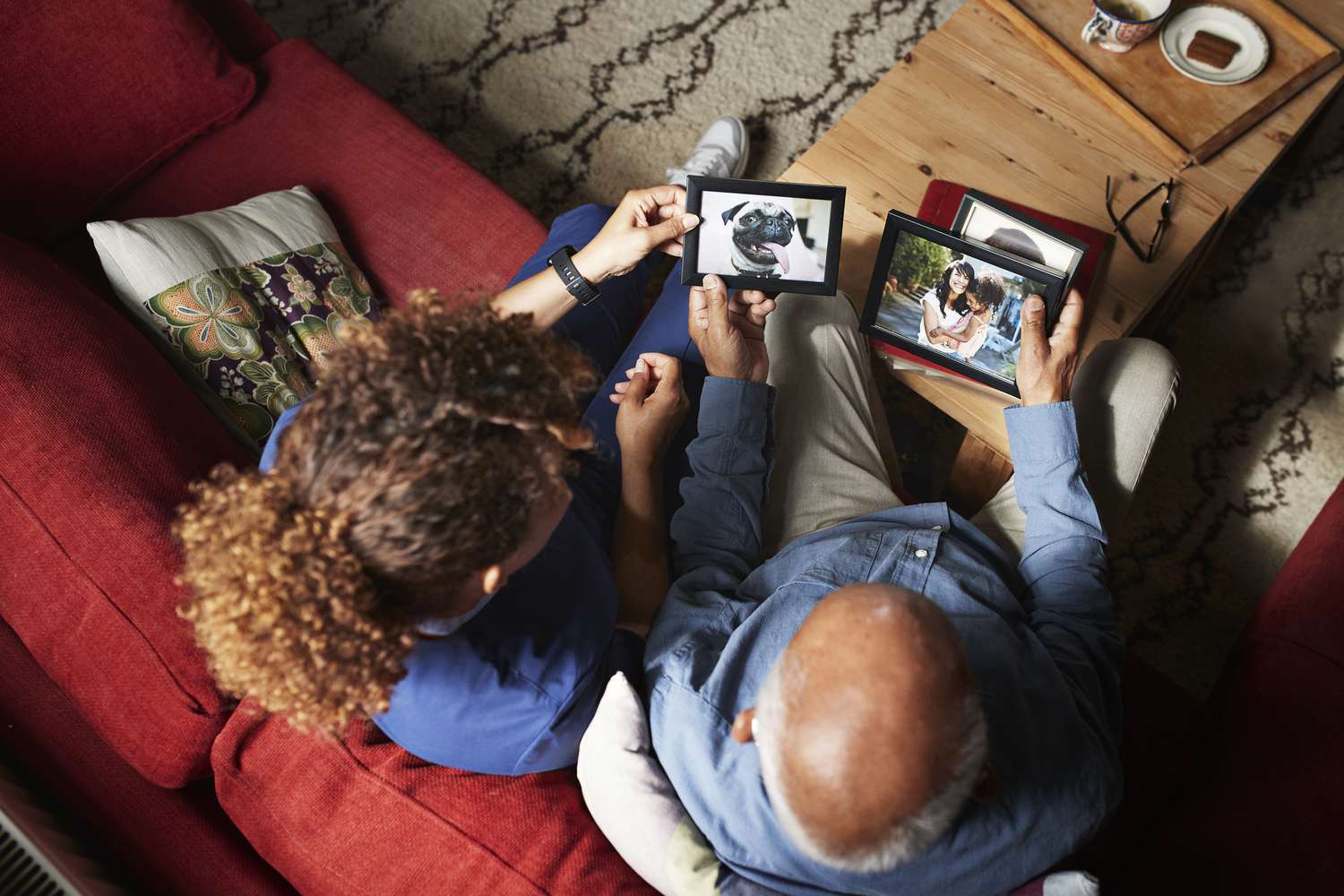
Nostalgia is a powerful emotion that can transport us back to cherished moments from our past. But what exactly is it? Nostalgia is a sentimental longing for the past, often triggered by specific memories, sounds, or smells. This feeling can bring comfort, joy, and even a sense of belonging. Interestingly, nostalgia isn't just about reminiscing; it can also have surprising benefits for our mental well-being. Studies show that indulging in nostalgic thoughts can boost mood, reduce stress, and enhance social connections. Whether it's a favorite childhood toy, an old song, or a family tradition, nostalgia has a unique way of weaving the past into our present lives. Ready to dive into some intriguing facts about this fascinating emotion? Let's get started!
Key Takeaways:
- Nostalgia is a powerful emotion that can improve mood, boost self-esteem, and enhance social connections. It can also act as a coping mechanism during times of stress and loneliness.
- Nostalgia is not just a fleeting feeling; it has significant psychological effects, including making people feel more optimistic about the future, reducing symptoms of depression, and enhancing creativity.
What is Nostalgia?
Nostalgia is a sentimental longing for the past, often for a period or place with happy personal associations. This feeling can be triggered by various stimuli, such as music, smells, or even certain foods. Let's dive into some fascinating facts about nostalgia.
-
The term "nostalgia" was coined by a Swiss doctor in the 17th century to describe the homesickness experienced by soldiers.
-
Nostalgia was once considered a medical condition, believed to cause symptoms like anxiety, insomnia, and even fever.
-
Research shows that nostalgia can improve mood, increase self-esteem, and enhance feelings of social connectedness.
-
Listening to music from one's past is a common trigger for nostalgic feelings.
-
Smells are powerful nostalgia triggers because the olfactory bulb is directly connected to the brain's memory centers.
Nostalgia in Pop Culture
Nostalgia often finds its way into pop culture, influencing everything from movies to fashion. Here are some intriguing facts about its impact.
-
Retro fashion trends often resurface, driven by nostalgic feelings for past decades.
-
Movies and TV shows frequently reboot or remake older classics to tap into viewers' nostalgia.
-
Video games often include Easter eggs or references to older games to evoke nostalgia among players.
-
Nostalgia marketing is a strategy where brands use elements from the past to create an emotional connection with consumers.
-
Collecting vintage items, like vinyl records or old toys, is a popular hobby fueled by nostalgia.
Psychological Effects of Nostalgia
Nostalgia isn't just a fleeting emotion; it has significant psychological effects. Here are some facts about how it impacts the mind.
-
Nostalgia can act as a coping mechanism during times of stress or loneliness.
-
People often feel more optimistic about the future after experiencing nostalgia.
-
Nostalgia can make people feel warmer, both emotionally and physically.
-
Reflecting on positive past experiences can help reduce symptoms of depression.
-
Nostalgia can enhance creativity by encouraging people to think about their past experiences in new ways.
Nostalgia and Memory
Memory plays a crucial role in the experience of nostalgia. Here are some facts about how they are interconnected.
-
Nostalgia often involves a "rosy retrospection," where people remember the past more fondly than it actually was.
-
Childhood memories are particularly potent triggers for nostalgic feelings.
-
Nostalgia can improve memory recall by linking past experiences to current emotions.
-
People with Alzheimer's disease often experience nostalgia, which can help improve their mood and cognitive function.
-
Nostalgic memories are usually autobiographical, focusing on personal experiences rather than historical events.
Nostalgia in Different Cultures
Nostalgia is a universal emotion, but it can manifest differently across cultures. Here are some interesting facts about its cultural variations.
-
In Japan, the term "natsukashii" describes a feeling of nostalgia mixed with a sense of longing and appreciation.
-
In Brazil, "saudade" is a deep emotional state of nostalgic longing for something or someone that is absent.
-
Chinese culture often associates nostalgia with the concept of "xiangchou," which means homesickness or longing for one's hometown.
-
In Russia, nostalgia is often linked to the Soviet era, with many people feeling a sense of loss for the past.
-
In the United States, nostalgia is frequently tied to the "good old days," often idealizing the 1950s and 1960s.
Nostalgia and Technology
Technology has changed the way we experience and express nostalgia. Here are some facts about this modern twist.
-
Social media platforms often feature "Throwback Thursday" or "Flashback Friday" to encourage users to share nostalgic memories.
-
Digital photo albums and cloud storage make it easier to revisit past memories.
-
Virtual reality can recreate past experiences, offering a new way to experience nostalgia.
-
Streaming services often have sections dedicated to classic movies and TV shows, catering to nostalgic viewers.
-
Online communities and forums allow people to connect over shared nostalgic interests.
Nostalgia in Marketing
Brands often use nostalgia to create emotional connections with consumers. Here are some facts about how nostalgia is used in marketing.
-
Coca-Cola's "Share a Coke" campaign used personalized bottles to evoke nostalgic feelings of sharing a drink with friends.
-
Nike frequently releases retro versions of their classic sneakers to tap into consumers' nostalgia.
-
Fast food chains like McDonald's often bring back discontinued menu items to evoke nostalgic memories.
-
Car manufacturers sometimes release modern versions of classic models to appeal to nostalgic buyers.
-
Advertisements often use retro music, imagery, and slogans to create a sense of nostalgia.
The Science Behind Nostalgia
Nostalgia isn't just an emotional experience; it's also a scientific phenomenon. Here are some facts about the science behind it.
-
The brain's hippocampus plays a key role in processing nostalgic memories.
-
Nostalgia activates the brain's reward centers, releasing feel-good chemicals like dopamine.
-
Studies show that nostalgia can reduce physical pain by distracting the brain from discomfort.
-
Research indicates that nostalgia can strengthen social bonds by reminding people of shared experiences.
Nostalgia's Lasting Impact
Nostalgia isn't just a trip down memory lane. It has real benefits for mental health, like reducing stress and boosting mood. When people reminisce, they often feel more connected to others, which can strengthen relationships. This sense of connection can even make individuals more generous and empathetic.
Interestingly, nostalgia can also inspire creativity. Reflecting on past experiences might spark new ideas or solutions to problems. Plus, it can provide a sense of continuity, helping people feel more grounded in their identities.
While too much nostalgia might lead to longing for the past, a healthy dose can be a powerful tool for well-being. So next time you find yourself daydreaming about the good old days, embrace it. Nostalgia isn't just about looking back; it's about enriching the present and future with the warmth of cherished memories.
Frequently Asked Questions
Was this page helpful?
Our commitment to delivering trustworthy and engaging content is at the heart of what we do. Each fact on our site is contributed by real users like you, bringing a wealth of diverse insights and information. To ensure the highest standards of accuracy and reliability, our dedicated editors meticulously review each submission. This process guarantees that the facts we share are not only fascinating but also credible. Trust in our commitment to quality and authenticity as you explore and learn with us.


